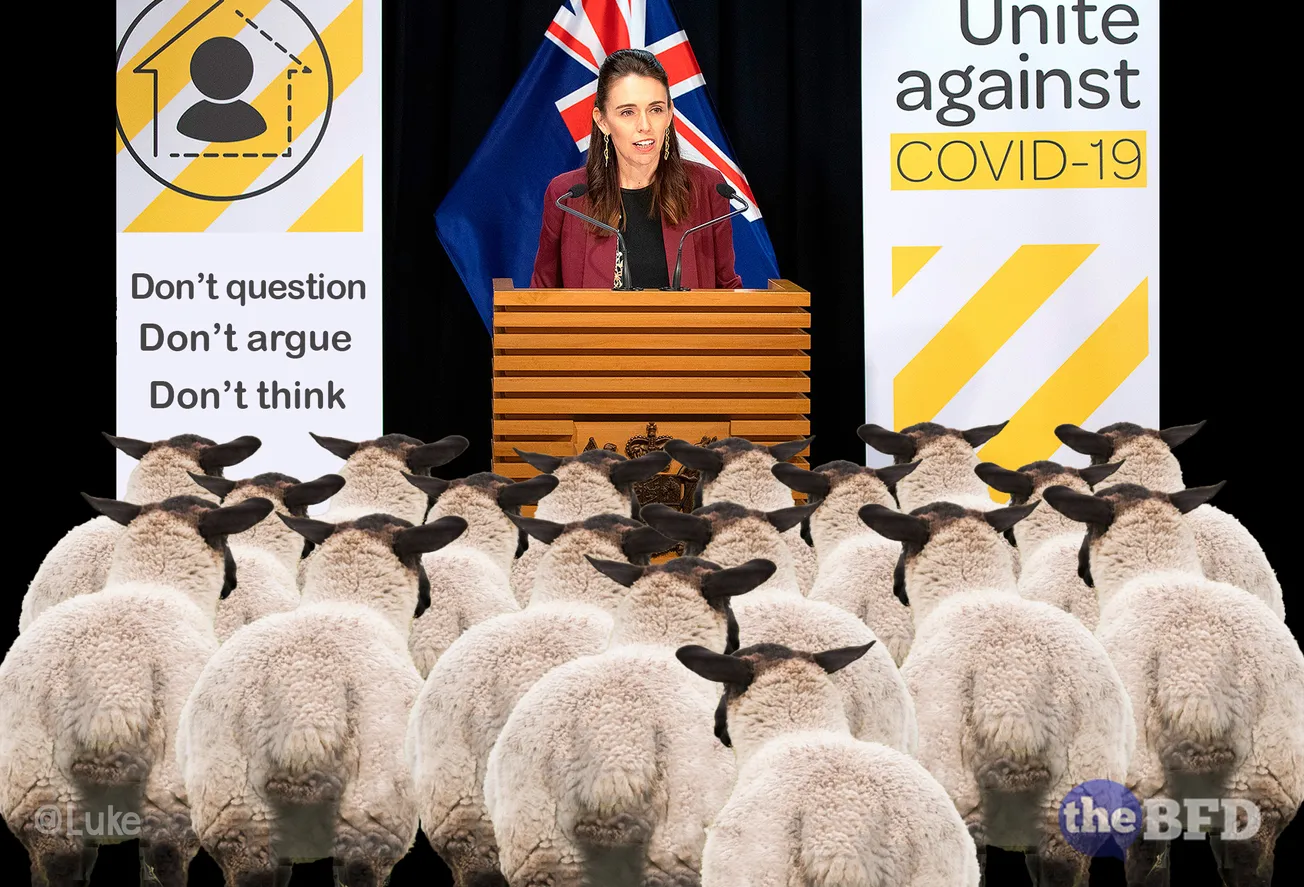Table of Contents
Chris Penk
First published by The BFD 3rd July 2020
The BFD is serialising National MP Chris Penk’s book Flattening the Country by publishing an extract every day.
Loyal Opposition
It’s often said that the Leader of the Opposition has the hardest job in politics.
That’s doubly so in a time of national crisis, when incumbent leaders generally enjoy at least a temporary surge of support.
Prime Ministers and Presidents personify a nation. Patriotic sentiment – especially when it’s responding to the fear of an external threat – will plump their approval ratings artificially.
It’s easy come but it’s also easy go. Once a threat passes, the associated fear factor no longer fuels the fire and the leader is left running on the fumes of gratitude.
In the moment, though, a wartime leader is practically untouchable.
In this context, Ardern’s opportunity to broadcast daily from the Beehive theatrette was an open goal. The nation’s strong association between Ardern and the crisis response may yet prove to be an own goal, however.
As credit is given, so too is blame. Put the other way, the rough must be taken with the smooth. At the time of writing, the political waters seem relatively smooth but that’s a surface impression.
Back to those daily press briefings at the Beehive theatrette, though. That setting includes New Zealand flags in the background and our nation’s coat-of-arms on the podium. Also visible were large pull-up banners instructing us to “unite”, highlighted by the yellow and white styling invoking emergency situations.
Remember that personification of the country with the wearer of the crown. The symbolism is powerful. It is also quite deliberate.
The flipside to calling upon the nation to unite was ugly and unproductive. Anyone daring to question the government’s direction was branded divisive and damaging and, in extreme cases, received death threats.
When Simon Bridges exercised his constitutional right – nay, duty – to speak up in this way he was shouted down by cowards and bullies.
Some had allowed themselves to be manipulated into a state of fear that trumped capacity for rational thought. Others were mere political opportunists. None should feel proud of themselves.
Ironically, those calling for opposition MPs not to be “political” were themselves being highly political. What could be more malicious than automatically ascribing malice to every utterance of another person.
I recall copping criticism online when, at one point, I made it clear that I was baffled by the decision not to allow butchers and greengrocers to trade safely. Supermarkets were being allowed to do so and having other outlets available would reduce the strain on those workers, as well as allowing others to keep their heads above water.
I stand by my questioning of the policy.
The funny thing is that for all the outraged comments on community facebook pages I received lots of feedback quietly delivered to my email inbox. Many agreed with me but did not want to voice their agreement and be lynched online by the baying mob. I cannot blame them one little bit.
The absurd aspect of these feeding frenzies directed at Bridges was that he was actually generally conciliatory and only occasionally combative.
Take, for example, these remarks from his statement in Parliament as the country entered lockdown:
We’re in tough times as coronavirus sweeps our globe, taking people’s lives and closing economies as it goes. The response around the world has varied. Some nations have been more effective than others.
NZ, our country, Aotearoa New Zealand, has not been immune. We’ve seen numbers surge as the virus spreads and we test more. Today, we could look backward at what’s been done well, and perhaps not so well; it’s not a time for that.
We are where we are and we’re all in this together.
And today, on the big questions in this House and in New Zealand, we agree. There’s no National or Labour or Green or ACT or New Zealand First; just New Zealanders.
Similarly, in an interview on Magic Talk, he discussed with host Ryan Bridge the decision that National had made to suspend its political campaigning, no small call just months from an election. Our then-Leader undertook that we would work “in a supportive and constructive way” with the government.
When Bridges later said aloud what many were thinking – that the Level 4 lockdown had been extended for the wrong reasons, namely a lack of preparation to enter Level 3 – pitchforks and torches were grabbed.
He had praised New Zealanders’ efforts before going on to make his entirely reasonable (and entirely correct) points.
With nothing substantive to criticise in that Facebook post, his critics were left to lambast his “timing” and “tone”.
Of course the right time to discuss the lack of level movement was when the Prime Minister announced it. After all, it was exactly when those devastated by the news wanted to hear that someone was prepared to go in to bat for them.
The politically convenient course would have been to keep quiet for some time or perhaps never speak up.
Little wonder that he received so much feedback thanking him for taking a stand, even if almost entirely via email. It was the same pattern that had played out, although of course on a much smaller scale in my case when I’d spoken up for the local independent food retailers in my electorate.
Sources:









